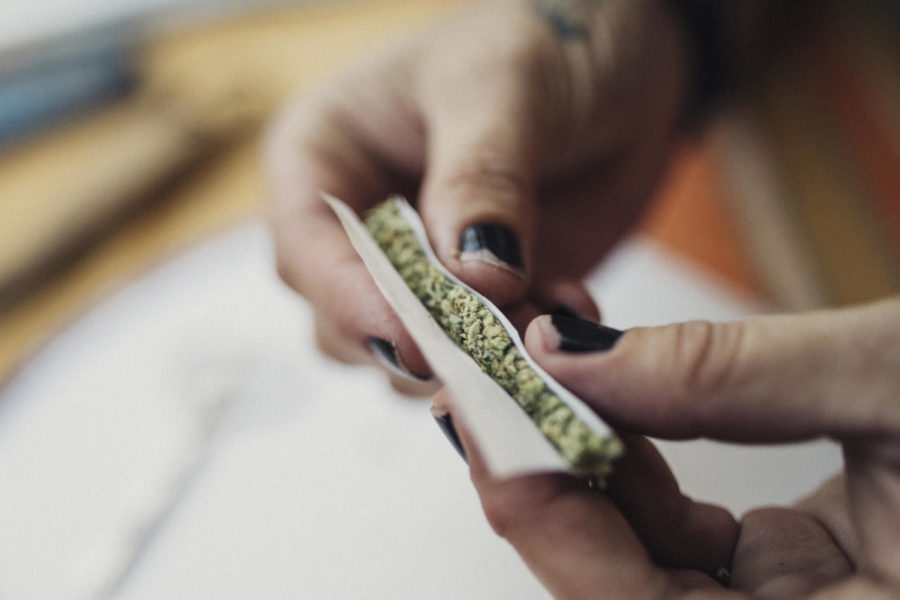Spanbauer: Modernize the war on drugs
Hands of a 40 year old woman rolling a joint, prescribed by a doctor for her chronic illness.
October 21, 2018
Canada just became the second country in the world to legalize marijuana on Oct. 17, making it “the largest national marijuana marketplace.”
In order to facilitate the demand on the new industry, Canadian recreational marijuana businesses are trying to lure in experienced marijuana workers and their weed wisdom from states where marijuana is legal, such as Colorado. These offers come with the possibility of salaries reaching as high as $250,000 and the promise of a larger and undeveloped market to conquer.
The federal legalization of marijuana now seems imminently upon us as more states will vote on the matter in the upcoming November elections. Also, more than half the United States population is in support of federal legalization. However, looking at how far cannabis culture has come, it is clear that federal measures must be taken for reasons of equality.
African-Americans and minorities currently make up roughly 20 percent of marijuana business owners in the United States. Yet, African-Americans are almost four times more likely to be incarcerated for marijuana-related offenses in the United States, and use the drug equally to white people. This unjust racial gap comes as a result of the failed war on drugs, and a racist legal system surrounding cannabis.
In hopes of curbing this racial inequality, California passed legislation in September to make marijuana entrepreneurship more accessible for minorities. Other legal recreational states like Washington are beginning to expunge the records of those incarcerated for marijuana offenses. These are huge steps in the right direction, however, we need these laws on the books federally.
Closer to home, in Midwest states such as Illinois, Iowa and Minnesota, African-Americans are almost eight times more likely as their white marijuana-using counterparts to get arrested for pot. If states continue to grow divided in their laws and positions on marijuana, the racial disparities will continue to grow.
For someone to be making a fortune off the legal marijuana industry in one part of the country, while another is serving years for possession of a couple of grams, is incredibly absurd. Turn on the news any day of the week and it becomes quite clear that a bunch of stoners is the least of our country’s problems. While 2017 saw a new record of 72,000 overdose-related deaths, no one died of marijuana.
Unlike weed, opioids are physically addicting and require the use of more drugs to feel the euphoria of each consecutive high. These properties of opioids, legal or illegal, such as prescription pain relievers, heroin or fentanyl, make them incredibly dangerous and fairly easy to overdose on. The National Institute on Drug Abuse has labeled the opioid epidemic and a “crisis” which is destroying the lives of prescription and illegal drug users alike.
America should take a page from Canada’s book and legalize recreational marijuana. This should be done for hundreds of reasons, the least of which being because over half of our population is in favor of it, and because it would introduce billions of dollars into our economy and open up new jobs. This needs to be done because marijuana is a harmless drug that should not be federally regulated in the ways that physically addictive and life-destroying drugs such as opioids are.
The focus needs to move from pot to the more serious drugs affecting our streets and taking the lives of young people across the nation. Once we can begin to reform drug legislation to fit these needs, our country will finally begin to heal.
















